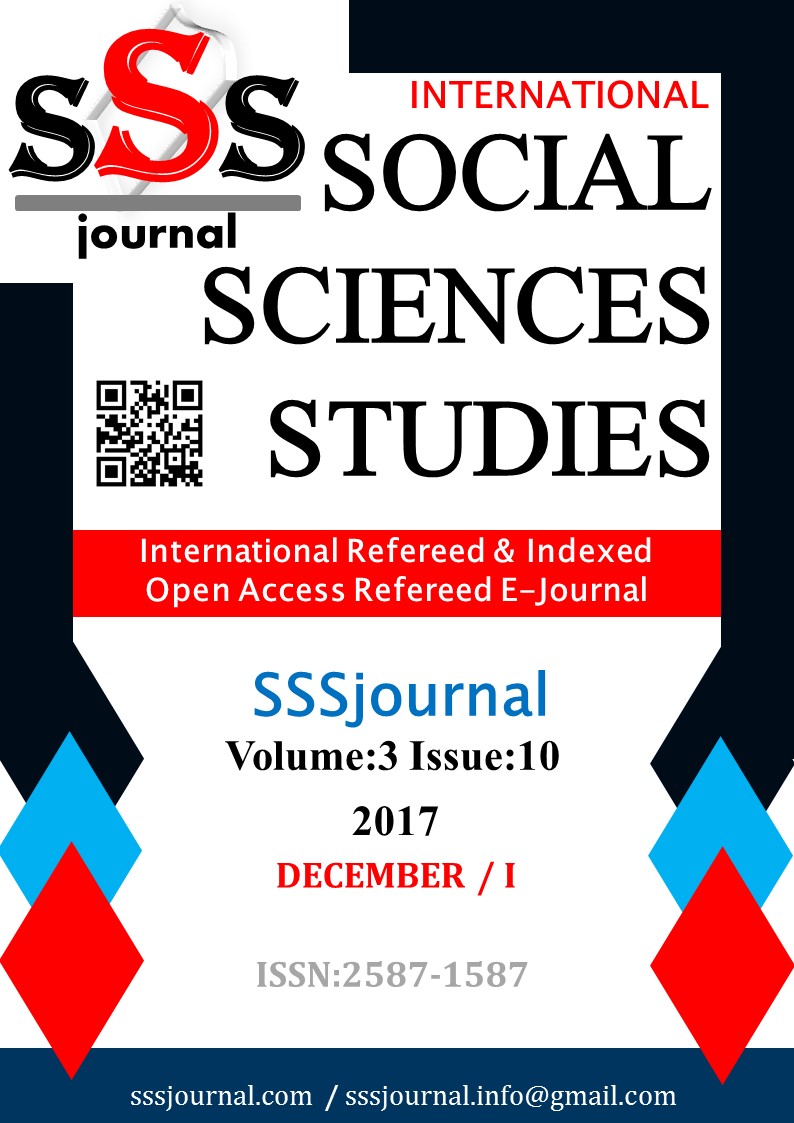Author :
Abstract
‘‘Kamu’’ sözcüğü tanımı itibariyle karmaşık bir yapıya sahiptir. Bir yandan tanımı kimin yaptığına bağlı olarak içi içe geçmiş bir yapıyı ortaya çıkarken, bir diğer yandan da tarihsel bir süreç içerisinde de farklılık kazanmaktadır. Hem kurumsal olarak devlete seslenen bir nitelik taşımakla birlikte hem de bireyleri ve en temelde yurttaşları da kavramsal olarak kapsar. Bir noktada kamu, düzenleme ve denetleme üzerine kurulmuş bir düşünce sistemi ile düzenleme ve denetlenmeye direnen bireylerin ortak kullanım alanına çağrı yapar. Bireylerin birlikteliğine, yurttaşların birlikteliğine, ya da topluma ait olması ile devlet tarafından devlete dâhil bir alan haline getirilen ve bu nedenle de bireyden, yurttaştan, toplumdan soyutlanan ve sonuç olarak bir bütün olarak herkese ait olan kamusallık ile tanımlanan bir kamu kavramsallaştırılmasından söz etmeliyiz. Bu çerçevede kamu kavramı kamusal olandan bağımsız değildir. Bu çalışma kamu kavramı temelinden yola çıkarak kamusallığın içeriğini oluşturan öğelere dair bir arayış hedefindedir. Bu arayış özelinde kamu ve kamusalla bir faaliyet olarak tiyatro eylemi çerçevesinde olacaktır. Hiç şüphesiz ki üretilen tiyatro faaliyetinin sunumu “kamu”yu gerektirir. Kamu ancak tiyatro mekânına gelerek bu faaliyetle içselleşebilir. Bu anlamda kamu ve kamusallık tartışmaları tiyatro ile içsel bir tartışma çizgisi izler. Ancak tiyatroların kamusallığı konusu belli başlı kavramlar tanımlanmadan veya tanımlara bir yön verilmeden belirlenecek veya açıklanabilecek bir konu değildir. Bu çalışma Frederickson’ın The Spirit of Public Administration çalışmasında “kamu kimdir?” sorusuna verdiği yanıtı kamusallığa dair temel kavramlar ekseninde Tiyatro faaliyeti özelinde incelemeye çalışmaktadır.
Keywords
Abstract
The definition of '' public '' has a complex structure. On the one hand, it becomes different on the other hand, while it reveals a built-in structure depending on who makes the definition. It conceptually covers both individuals and, at the very least, citizens, with a quality that appeals to the state as an institution. At one point the public calls for the common use of individuals who resist regulation and control through a system of thought and regulation based on regulation and supervision. We should talk about a public conceptualization that is defined by the coexistence of individuals, the coexistence of citizens, or the collectivity, and the publicity that is brought into the state by the state into the state, and is therefore individualized, citizenized, abstracted from society and eventually belonged to everybody. In this framework, the concept of the public is not publicly independent. This study is aimed at a search for the elements that constitute the content of publicity, starting from the basis of the public concept. This quest will, in particular, be framed in the theatre action as a public and public activity. Undoubtedly, the presentation of the produced theatre activity requires the "public". The public can only be internalized by this activity by coming to the theatre space. In this sense, public and public debates follow an inner controversy with the theatre. However, the topic of publicity of the theatres is not a matter to be defined or explained without defining certain concepts or giving directions to the definitions. This study attempts to examine Frederickson's response to the question of "who is the public" in the study of the Spirit of Public Administration in the context of the basic concepts of publicity in the context of Theatre activity.
Keywords
- And, Metin, (1970), 100 Soruda Türk Tiyatrosu Tarihi, Gerçek Yayınevi, İstanbul.
- And, Metin, (1970), 100 Soruda Türk Tiyatrosu Tarihi, Gerçek Yayınevi, İstanbul.
- Akıllıoğlu, Tekin, (1991), “Kamu Yararı Kavramı Üzerine Düşünceler”, Amme İdaresi Dergisi, C. 24, No. 2, s. 3-15.
- Akbulut, Örsan. Ö, (2007), Küreselleşme Ulus Devlet ve Kamu Yönetimi, TODAİE Yayınları, Ankara.
- Altun, Hakan, (2012), “Mekân Üzerinde Mücadele: Egemen(lerin) Tiyatro Yapılarına Karşı Boş UzamdaDirenme ve Ezilenlerin Belleği Olarak Teatral “Alan Dışı’nın İnşası”, Tiyatro Araştırmaları Dergisi, C. 33, No.1, s. 7-31.
- Arendt, Hannah, (2009), İnsanlık Durumu, İletişim Yayınları, İstanbul.
- Bozkurt, Ömer &Turgay, Ergun, (2008), Kamu Yönetimi Sözlüğü, TODAİE Yayınları, Ankara.
- Birleşmiş Milletler, Ekonomik ve Sosyal Konsey, http://www.ihop.org.tr/dosya/ESKHK/ESKHKGY21.pdf. Dacheux, Eric, (der), (2012), Kamusal Alan, Ayrıntı Yayınları, İstanbul.
- Elden, S. (2004, January). Between Marx and Heidegger: Politics, Philosophy and Lefebvre's The Production of Space. Antipode, s. 86-105. doi:10.1111/j.1467-8330.2004.00383.x
- Frederickson, H. George, (1997), The Spirit Of Public Administration, Jossey- Bass Publishers, San Francisco. Fuat Mehmet, (1961), Başlangıcından Bugüne Türk ve Dünya Tiyatro Tarihi, Varlık Yayınevi, İstanbul.
- Habermas, Jürgen, (2012), Kamusallığın Yapısal Dönüşümü, İletişim Yayınları, İstanbul.
- Haque, M. Shamsul, (Ocak- Şubat 2001), “The Diminishing Publicness of Public Service Under the Current Mode of Governance”, Public Administration Rewiev, C. 61, No. 2 s. 65-82.
- Kovancılar, B. & Kahriman, H. (2007), “Devlet-Sanat İlişkisi: Sanat Desteklerinin Dayandığı Argümanlar”, Finans Politik & Ekonomik Yorumlar, Cilt: 44, Sayı:513, sf. 21-33.
- Konur, Tahsin, (2001), Devlet Tiyatro İlişkisi: Geçmişten Günümüze Örneklerle Devlet Tiyatro İlişkisinde Belli Başlı Sistemler, Dost Kitabevi Yayınları, Ankara.
- Lefebvre, H. (2014). Mekânın Üretimi. İstanbul: Sel Yayıncılık.
- Liberal Düşünce Dergisi, (2006), Devlete Farklı Bakış, Yıl.11, Sayı. 41-42.
- Melton, James Van Horn, (2011), Aydınlanma Avrupa’sında Kamunun Yükselişi, Boğaziçi Üniversitesi Yayınevi, İstanbul.
- Nabatachi, Tina (Kasım 2010), “The (Re)discovery of the Public in Public Administration”, Public Administration Rewiev, C. 70, No. 1, s. 309- 311.
- Özbek, Meral(ed.), (2004), Kamusal Alan, Hil Yayın, İstanbul.
- Pesch, Udo, (2008), “The Publicness of Public Administration”, Administration & Society, C.40, No. 2, s. 170-193.
- Sennet, Richard, (2010), Kamusal İnsanın Çöküşü, Ayrıntı Yayınları, İstanbul. Türk Dil Kurumu, http://tdkterim.gov.tr/bts/.
- Zabcı, Filiz Çulha, (2011), “Kamu Yararı Üzerine”, Kuramsal ve Tarihsel Boyutlarıyla Hak Mücadeleleri Cilt. 1., Y. Bürkev, E. Elgür, Y. Özdek, M. Özuğurlu (ed.), Notabene Yayınları, Ankara.
